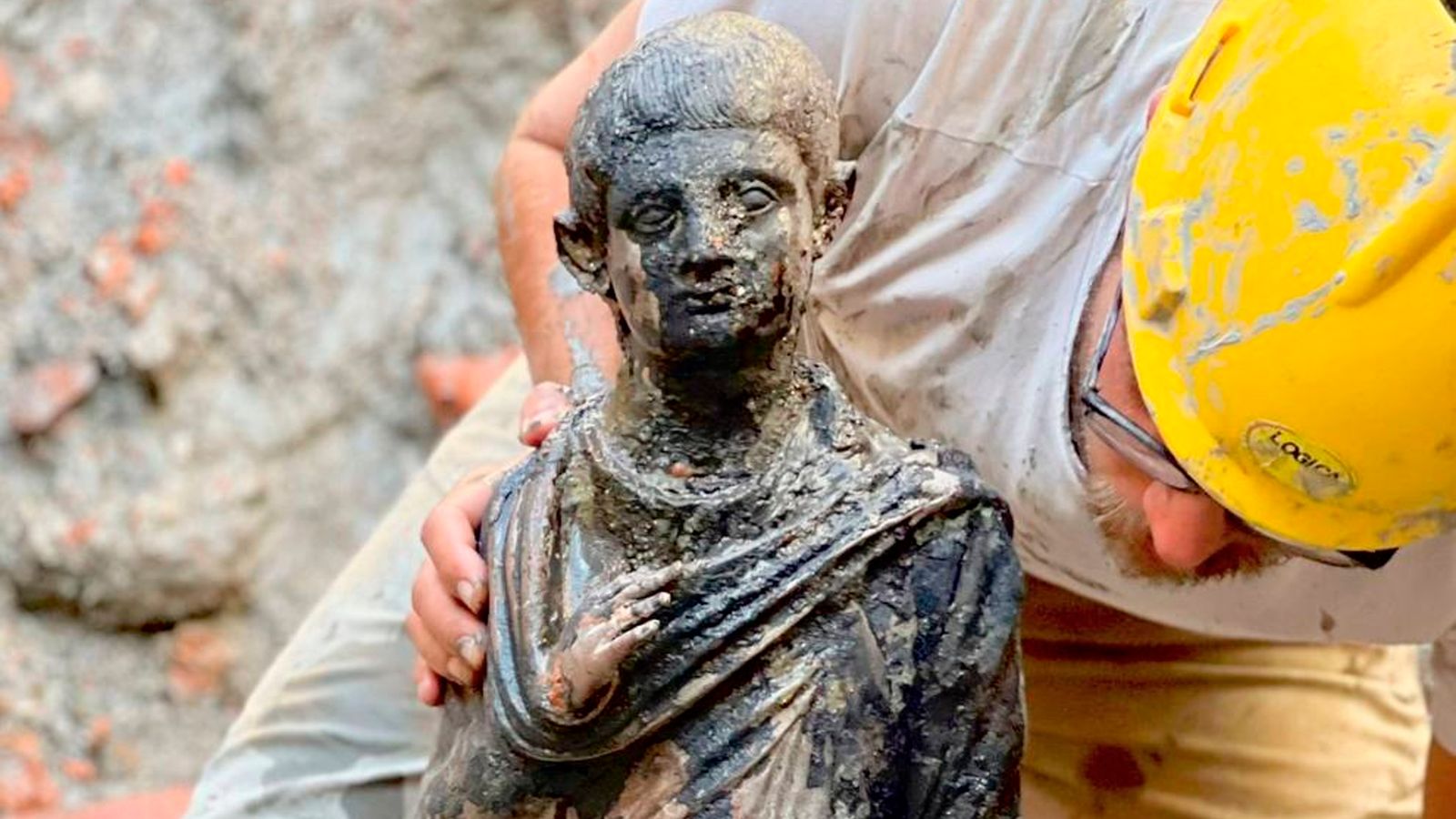Two dozen figurines and coins – including bronze statues built 2,000 years ago – have been discovered in a find experts say will “rewrite history”.
Announced by Italian authorities on Tuesday, the archaeological achievement is said to significantly change what we previously knew about the evolution of the Etruscan civilisation to the Roman Empire.
The sculptures were uncovered in the sacred baths of San Casciano dei Bagni in an archaeological dig near Siena, where their delicate features, inscriptions and rippled tunics lay hidden and perfectly preserved under mud.
The finding is said to be one of the most significant Mediterranean discoveries ever and the most important since the 1972 underwater discovery of the famed Riace bronze warriors, said the culture ministry’s director of museums, Massimo Osanna.
The figurines were also accompanied by 5,000 coins in gold, silver and bronze, the ministry reported.
A new museum will be constructed in the area to showcase the extraordinary antiquities, the ministry announced, demonstrating the significance of the finds.
Jacopo Tabolli, who coordinated the excavation on behalf of the University for Foreigners in Siena, said the momentous discovery shed a new light on the Etruscan civilisation and the expansion of the Roman Empire in today’s central Italy.
Pablo Mari: Arsenal stars honour stabbed teammate – as his on-loan club say he faces months out of action
Pablo Mari: Arsenal player says he was ‘lucky’ as he ‘saw a man die in front of him’ during supermarket attack
New Italian PM Giorgia Meloni sworn in as Italy forms first far-right-led government since WW2
The 1st and 2nd century BC period was fraught with numerous wars and conflicts across what is today’s Tuscany, Umbria and Lazio regions.
Yet, these bronze statues are evidence that Etruscan and Roman families prayed together to deities in the sacred sanctuary of the thermal springs.
The effigies, including depictions of ancient Greek god Apollo and the goddess of health Igea, bear both Etruscan and Latin inscriptions.
“While there were social and civil wars being fought outside the sanctuary … inside the sanctuary the great elite Etruscan and Roman families prayed together in a context of peace surrounded by conflict,” Mr Tabolli said.
“This possibility to rewrite the relationship and dialectic between the Etruscan and Romans is an exceptional opportunity.”
Read more on Sky News:
‘Most impressive’ archaeological site could ‘transform’ understanding of Roman era
The discoveries ranged from full-body figures to individual body parts, which would have been offered to the gods in exchange for medical healing from the thermal waters, the ministry stated.
The historic treasures also make up the largest deposit of bronzes from this era in Italy, as most surviving antiquities are mainly made from terracotta, the ministry said.
“It’s a discovery that will rewrite history,” Mr Tabolli added.







